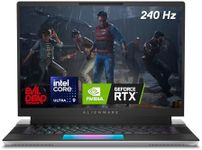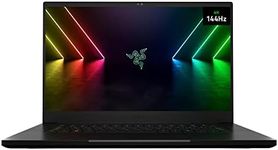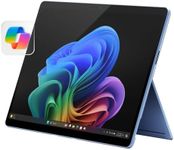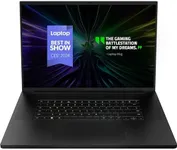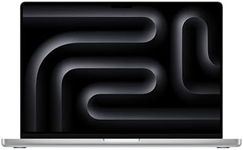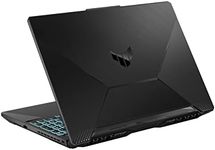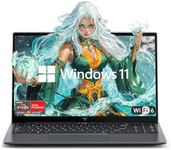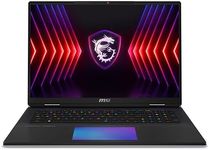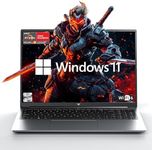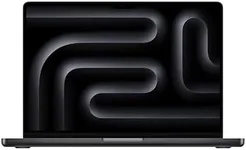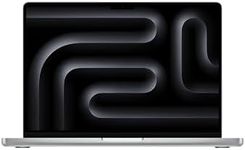Buying Guide for the Best Laptops
Choosing the right laptop can feel overwhelming because there are so many options and features to consider. The best way to start is by thinking about how you plan to use your laptop. Are you looking for something lightweight for travel, a powerful machine for gaming or creative work, or a reliable device for everyday tasks like browsing and word processing? Once you know your main needs, you can focus on the key specifications that matter most for your use case. Understanding these specs will help you make a smart choice and avoid paying for features you don’t need or missing out on important ones.Processor (CPU)The processor, or CPU, is the brain of your laptop and determines how quickly it can handle tasks. A faster processor means smoother performance, especially when running multiple programs or demanding applications. Processors are often divided into entry-level, mid-range, and high-end. Entry-level CPUs are fine for basic tasks like web browsing and email. Mid-range CPUs are good for multitasking, light photo editing, and some gaming. High-end CPUs are best for heavy tasks like video editing, gaming, or running complex software. Think about what you’ll use your laptop for most often—if it’s just simple tasks, you don’t need the fastest CPU, but for more demanding work, a stronger processor is worth it.
Memory (RAM)RAM is your laptop’s short-term memory and affects how many programs you can run at once and how smoothly they operate. More RAM means better multitasking and performance with larger files or more complex software. Laptops usually come with 4GB, 8GB, 16GB, or more. 4GB is suitable for very basic use, 8GB is a good standard for most people, and 16GB or more is ideal for heavy multitasking, gaming, or creative work. If you often have many tabs or programs open, or use demanding applications, aim for more RAM.
Storage (HDD/SSD)Storage is where your files, programs, and operating system are kept. There are two main types: HDD (hard disk drive) and SSD (solid state drive). SSDs are much faster, making your laptop start up and load programs quickly, while HDDs offer more space for less money but are slower. Storage size is measured in gigabytes (GB) or terabytes (TB). If you store lots of photos, videos, or large files, you’ll want more storage. For most users, a 256GB or 512GB SSD is a good balance of speed and space, but if you need lots of room, look for 1TB or more.
Display (Screen Size and Resolution)The display affects how your laptop looks and feels to use. Screen size is measured in inches, diagonally. Smaller screens (11-13 inches) are more portable, while larger screens (15-17 inches) are better for watching videos or working with multiple windows. Resolution refers to how sharp the image is, with Full HD (1920x1080) being a common standard. Higher resolutions make text and images look crisper, which is great for creative work or watching movies. Choose a screen size and resolution that matches your needs for portability and visual comfort.
Battery LifeBattery life tells you how long your laptop can run on a single charge. This is especially important if you plan to use your laptop away from a power outlet, like in school, at a café, or while traveling. Battery life can range from a few hours to over 10 hours, depending on the laptop and how you use it. If you need to work on the go, look for a laptop with longer battery life. If you mostly use your laptop plugged in, this may be less important.
Weight and PortabilityWeight and portability matter if you plan to carry your laptop around often. Lighter laptops are easier to take with you, but sometimes have fewer ports or smaller batteries. Heavier laptops may offer more power or bigger screens, but are less convenient to move. If you travel or commute a lot, a lighter, more compact laptop is usually better. If your laptop will mostly stay on a desk, weight is less of a concern.
Ports and ConnectivityPorts are the physical connections on your laptop for things like USB drives, external monitors, and headphones. Some laptops have lots of ports, while others (especially thinner models) have only a few. Think about what devices you need to connect—if you use a lot of accessories, make sure the laptop has the right ports. Also, check for Wi-Fi and Bluetooth support for wireless connections.
Build Quality and KeyboardBuild quality affects how sturdy and durable your laptop feels. A solid build is important if you’ll be carrying your laptop around or using it in different environments. The keyboard and touchpad are also important for comfort, especially if you type a lot. Try to find a laptop with a comfortable keyboard and a responsive touchpad, as these can make a big difference in daily use.

